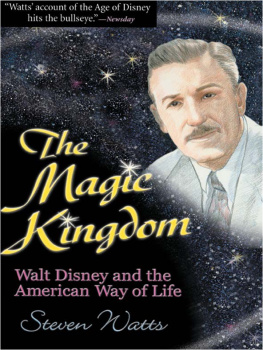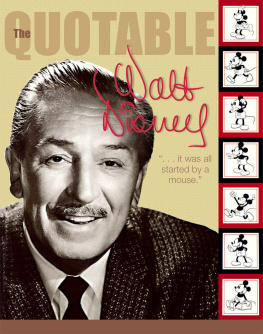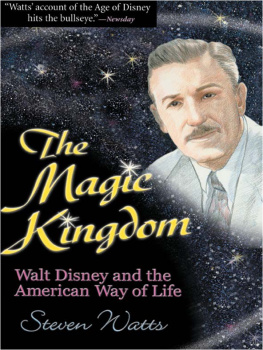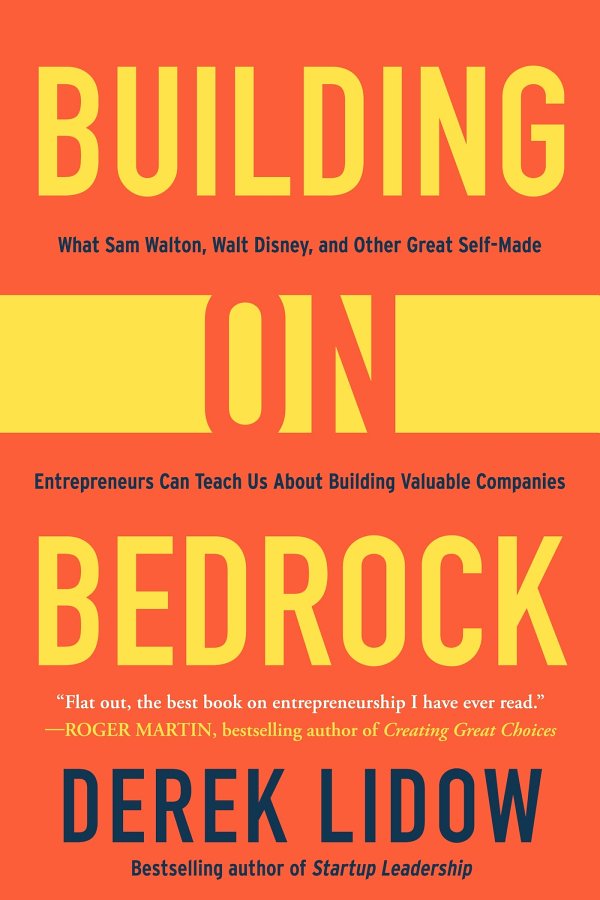Copyright
Diversion Books
A Division of Diversion Publishing Corp.
443 Park Avenue South, Suite 1008
New York, NY 10016
www.DiversionBooks.com
Copyright 2018 by Derek Lidow
All rights reserved, including the right to reproduce this book or portions thereof in any form whatsoever.
For more information, email info@diversionbooks.com
First Diversion Books edition January 2018
ISBN: 978-1-63576-175-7
In memory of my parents, Eric and Leza Lidow.
High expectations are the key to everything.
Sam Walton
CHAPTER 1:
Truth Matters
There is a tide in the affairs of men,
Which, taken at the flood, leads on to fortune;
Omitted, all the voyage of their life
Is bound in shallows and in miseries.
On such a full sea are we now afloat,
And we must take the current when it serves
Or lose our ventures.
William Shakespeare,
Julius Caesar, Act 4, Scene 3, Brutus: Lines 224230
By opening day for store number two, the team felt fried. For the two weeks leading up to the grand opening, they had been working for as many hours as they could stand to get the store ready. Rebuilding and installing old fixtures salvaged from another store that had recently gone bankrupt had been a huge struggle. The team had unloaded truckloads of merchandise late into the night and had barely finished moving in and placing the merchandise on the shelves, on tables, and in front of the store. On top of that, the July heat had been punishing, the building wasnt air-conditioned, the restrooms hadnt been working, and the parking lot wasnt fully paved.
A great deal was at stake. Store number one had struggled to make money and was not as successful as hoped. Sam Walton had borrowed as much money as the bank would loan him, using everything he and his wife owned as collateral. He needed Wal-Mart store number two to prove that a discount retail chain focused on small towns could be highly profitable. If store two performed like store one, Sam and his team would have to put their growth plans on hold.
To get as much attention for the opening as possible, Sam advertised great deals on brand-name staples like toilet paper and detergent. To give the opening a family feel, Sam arranged free donkey rides for kids in the parking lot right in front of the main entrance. He also bought every ripe watermelon that any farmer within a days drive could deliver. The team had piled them four feet high along the front of the store (and along the edge of the unpaved areas of the parking lot to keep the customers away from tripping over the old wooden forms still lying around).
Opening day was the hottest day of the summer, with temperatures in the upper 90s. But the heat didnt keep the crowds away. To buy at the advertised low prices, they began lining up even before the store opened at nine in the morning. The team worked with hardly a break all day manning the cash registers and keeping the shelves, tables, and floors stocked with the items that were being snapped up. The customers were clearly excited.
With all the crowds and all the business, nobody noticed or really cared that some of the watermelons were breaking open in the heat, their juices flowing onto the sidewalk and into the parking lotnor did anyone notice or care that the man running the donkey rides didnt have time to pick up all the donkey droppings as soon as they hit the ground. Over the course of the day, the watermelon juices and the donkey dung covered growing portions of the sidewalk. The acrid donkey-watermelon mix was soon tracked inside and permeated the store.
A top financial officer of a well-established Midwestern drug store chain was perhaps the only person that did care. His company had heard that Sam Walton had some interesting ideas about how to get customers excited, and he had driven from Missouri to check out the opening. He was appalled by the smells and broken watermelons, and by the merchandise piled high on tables instead of laid out neatly on the shelves. He reported back that the opening was the worst he had ever seen; anyone in his company who ran an opening like the one he witnessed would have been fired on the spot.
But the top financial officer had ignored the store full of customers and the long lines at the cash registers. He had judged the opening by conventional big-city store aesthetics, missing the real story. Sam and his team understood that in the rural heartland, everyone was used to animal smells. He understood how to make his customers happy by making their dollars go much farther, and that his customers would feel better served in a humble-looking (and smelling) store.
That Midwestern drug store chain long ago went out of business. But its top financial officer eventually began to understand what was pleasing Sams customers and that Sam was willing to change
Sam, like the other entrepreneurs you will meet in these pages, provides a useful corrective to what we think we know about starting a business. Yes, Walmart is now one of the most valuable companies in the world, but it didnt get that way overnight, and its success didnt depend on network effects or venture capital. It depended on some hard and humble truths about entrepreneurship that have gotten lost amid all the publicity about a few young Silicon Valley billionairestruths that would-be entrepreneurs and their loved ones ignore at their peril.
Essential Understanding
No matter what you do in life, you need to understand entrepreneurship. The facts are: Over 60 percent of working men and women in the US want to start their own business, and if youre male, the chances are about fifty-fifty that you will actually attempt to be an entrepreneur sometime during your working life; if youre female, the chances are about one in three. More than 30 percent of the population in the United States at any point in time is either engaged in entrepreneurship or directly related to someone that is. Since funding from friends and family constitutes an important source of revenue for many startups, you stand a great chance of being asked to invest in a startup sometime in your life, regardless of how much money you have in the bank.
But entrepreneurship is not what most people think it is. And if you act on what you think, you will likely make a big mistake, lose money, destroy relationships, and waste precious years of your life. Conversely, what you think you know could make you too afraid to seize the lucrative entrepreneurial opportunities around you.
A simple remedy for your lack of knowledge may be to do nothingnothing risked, nothing lost. Thats what most people do. But that wont work, because confronting entrepreneurship is not a choice. Modern life forces you to make decisions that are, at their core, about entrepreneurialism. The company you work for, your boss, co-workers, relatives, and friends all have as much say as you do about whether entrepreneurship will impact your life! You could lose your job, or someone you cant stand might replace your wonderful boss, forcing you to decide whether being your own boss is the right thing for you. You are also likely to be asked to support a friend or relative in starting a company, whether through a loan, an investment, or part-time work. To make the right decisionwhether its about being your own boss or investing in your favorite cousins startupyou must understand entrepreneurship.
We all dream to some extent about achieving a combination of the fortune, fame, and control over our lives that we associate with successful entrepreneurs. Those are admirable aspirations in a society that counts on entrepreneurs to innovate, create new jobs, and grow our economy. Society encourages us to take the entrepreneurial bait, but how can you know if being an entrepreneur will end as a dream come true or a nightmare from which you cannot awake?

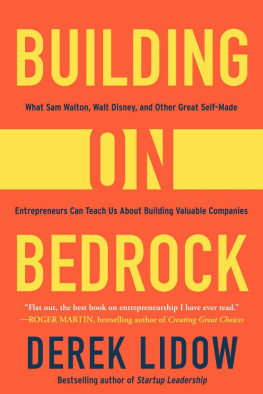
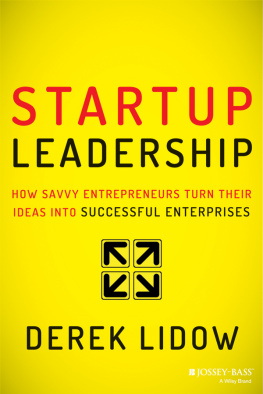

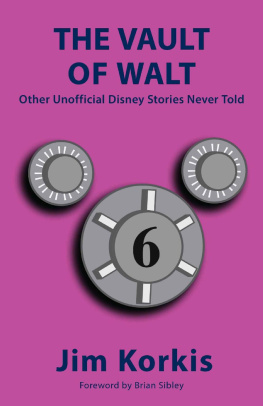
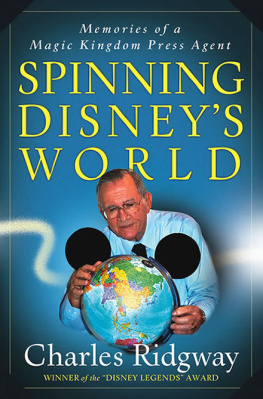
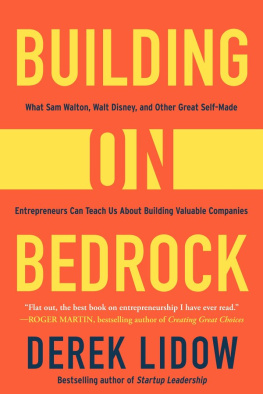
![Laura Lea Miller - Frommers Walt Disney World & Orlando with kids [2010]](/uploads/posts/book/213893/thumbs/laura-lea-miller-frommer-s-walt-disney-world.jpg)
